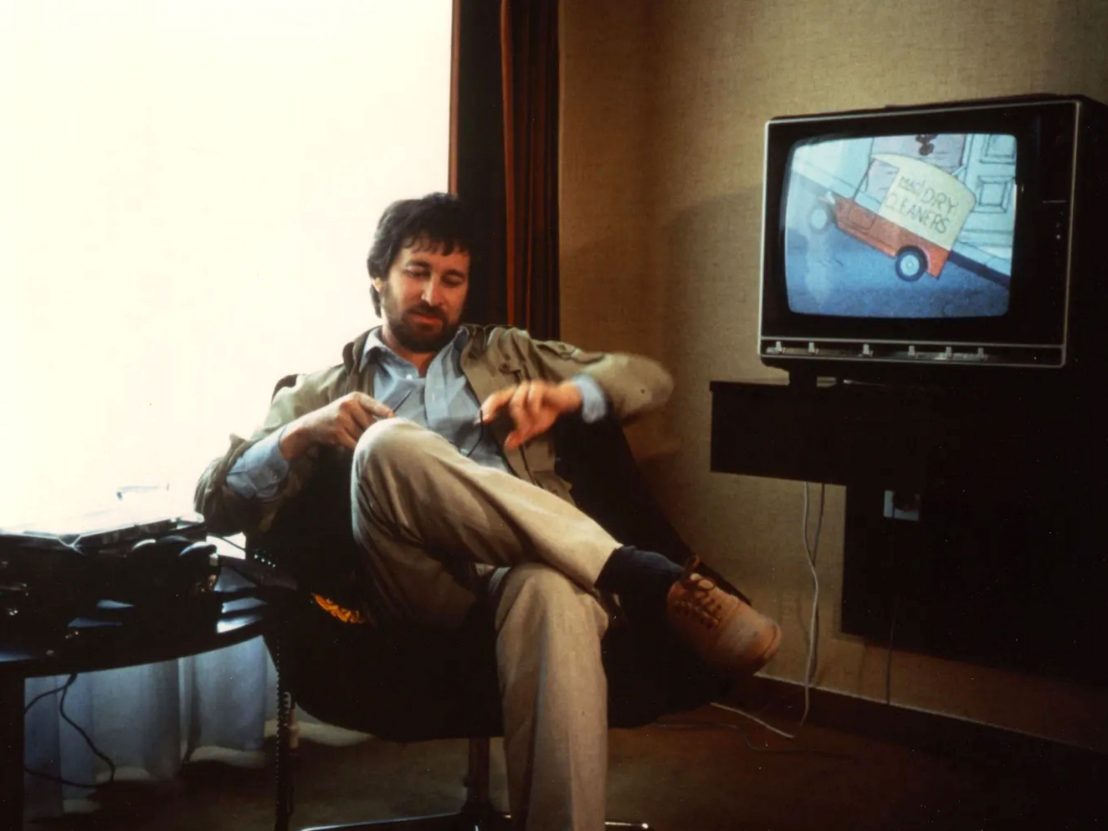
At the 1982 Cannes Film Festival, the German filmmaker Wim Wenders sat down with a group of fellow directors in a hotel room and asked them a searching question: “Is cinema a language about to get lost, an art about to die?”
Their reflections ranged from stoic optimism to matter-of-fact pessimism. Of course, cinema did not die – the fears expressed in the resulting documentary, Room 666, mostly did not come to pass. Forty years on, actor and director Lubna Playoust plans to ask some of her peers the same question, in the same hotel room. So, how will the responses compare?
One of the main concerns expressed in Room 666 was that film was becoming obsolete because of television – Roumain Goupil talked about the “prehistoric” process of making a film, while Paul Morrissey said film was “dropping dead,” because of the emphasis on plot and directors over characters, claiming that “people exist on television, and it’s better.” A number of those interviewed admitted that they didn’t go to the cinema much.
Jean-Luc Godard, meanwhile, declared that “television and movies are more and more the same.” Indeed, today streaming platforms have more or less broken the dichotomy between film and television, seeking accolades and recognition from both industries for their original content. Discussions around whether titles produced by streaming platforms should be screened at prestigious festivals such as Cannes are ongoing, although opposition is waning.
Among those interviewed by Wenders were such luminaries as Rainer Werner Fassbinder, Werner Herzog and Steven Spielberg, as well as Ana Carolina, Mike de Leon and Maroun Bagdadi. Looking at this year’s line-up, there are many potential contributors to this new project who it would be interesting to hear from, including Mia Hansen-Løve, Pietro Marcello, David Cronenberg, Claire Denis, Ali Abbasi and Mark Jenkin.
The catalyst for the original project was Wenders contemplating a (then) 150-year-old Lebanon cedar by the roadside in Cannes, how it had witnessed the advent of cinema and may live to see its demise. Spielberg wryly objected on behalf of directors: “If the end of the world came we probably wouldn’t know how to dig a hole for ourselves to climb into – we only know moviemaking. So we have to be optimistic.”
Given the increasing influence of the climate crisis on the collective imagination and life in general, perhaps this notion will be flipped on its head – the concern now is that cinema might outlive the natural world itself.
Published 22 Apr 2022

This year’s stacked line-up also includes new work Kelly Reichardt, Ruben Ostlünd and Park Chan-wook – but no David Lynch.

The festival has caused a stir by banning the digital distributor from its official competition.

They’ll be joined by fellow luminaries Alex Garland and Pietro Marcello when the Quinzaine returns to Cannes next month.